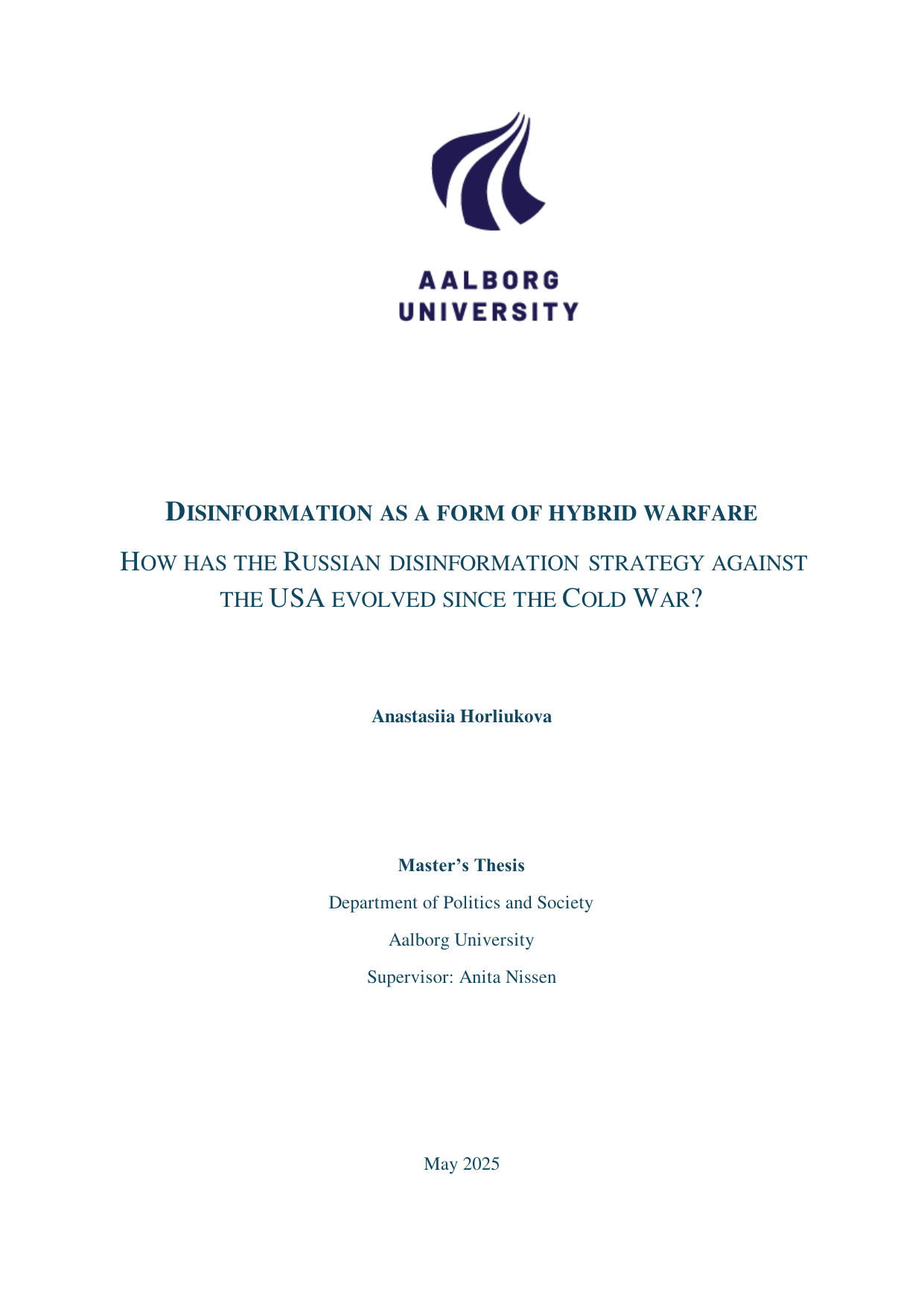
Disinformation as a form of hybrid warfare: How has the Russian disinformation strategy against the USA evolved since the Cold War?
Translated title
Disinformation as a form of hybrid warfare
Author
Term
4. semester
Education
Publication year
2025
Submitted on
2025-05-28
Pages
71
Abstract
This thesis analyses the evolution of Russian disinformation strategy against the USA. It concentrates on the research of Russian utilization of hybrid warfare tools as a foreign policy approach. Study seeks to uncover the complexity of observable practices and underlying mechanisms in the context of Russian American relations. By implementing neoclassical realist assumptions in the modern hybrid warfare context, this paper is able to carry out in-depth investigation. It argues that in the case of examining foreign policy of a state, it is important to connect domestic variables with systemic pressures. Combination of those two components can provide a solid argument regarding explanation of the state’s behaviour in an international setting. This paper contributes to the comprehension of Russian hybrid warfare tools and methods of identifying disinformation narratives. A research design is built upon longitudinal single case study. By observing the variable disinformation strategy over an extended period of time, it allows us to understand the complexity of how national interests collide with external threats. The analysis reveals that the Russian disinformation strategy against the USA is a part of a grand hybrid warfare model which Russia tested internally and in the neighbouring states. Methods of influence that are chosen by the state's leadership reflect its national interest, which, as this paper argues, sometimes prioritizes regime survival. Unable to confront the Western hegemony, Russia comes to the adaptation of asymmetrical methods. Modern hybrid warfare strategy of Russia draws inspiration from the Soviet toolkit of the Cold-War era which was adapted to the modern information technologies. The study consists of two main chapters – theoretical framework and analysis which provides a historical overview and three stages of periodization from 1991 until today. Each stage consists of three components: domestic dynamic, near abroad influence and foreign policy towards the USA. Each period follows an unstrict structure of analysing goals of the hybrid warfare strategy, its methods and specifications of disinformation narratives.
Documents
